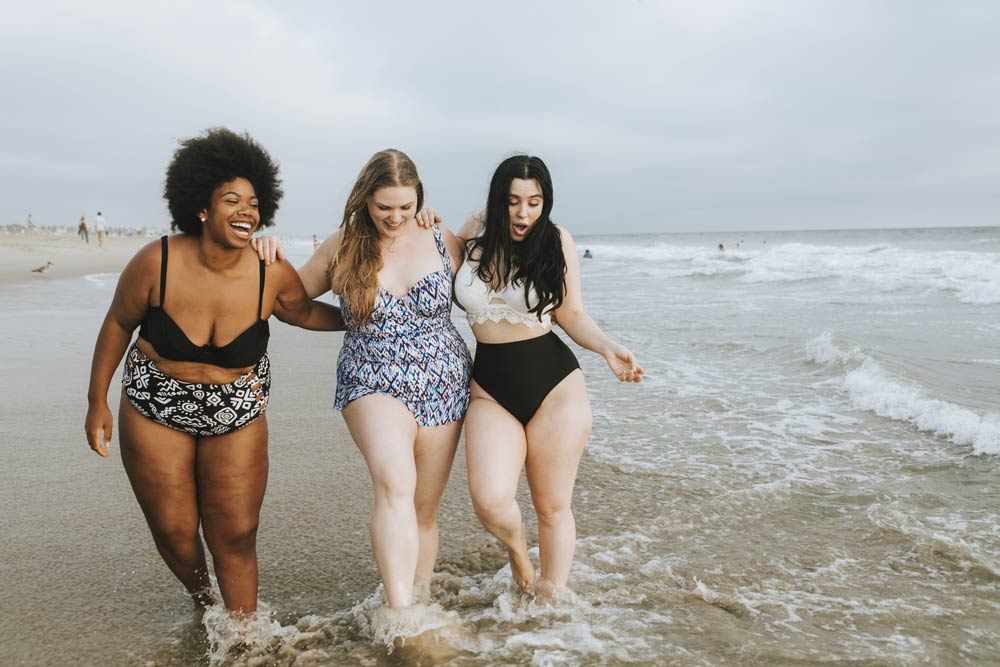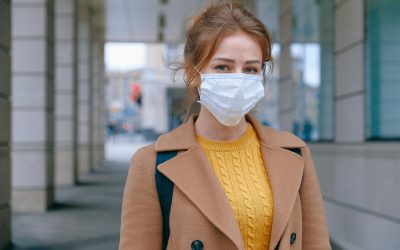Body Image + Social Justice
It’s no secret that the ‘thin ideal’ exists and has been a major factor in influencing body image distress, distortion and disordered eating for decades in Westernized cultures. And, I am here to tell you there is more to the story. Think about the last time you scrolled through social media, watched Netflix or passed by billboard ads down the highway. Think critically about the bodies portrayed to you and the other ‘ideals’ represented to you. What do you notice? Were the ‘desirable’ models/actors/influencers a certain body size, skin color, age range or gender? Were they able bodied? In a heterosexual relationship?
If you answered yes to any of those, that is because the ideals represented to us are complex and more specific than the thin ideal. The thin ideal is SO real. Most of us grow up with the pressure to want to shrink our bodies. AND, so is the white Ideal. The ableist ideal. The gender binary ideal, the heterosexual ideal, the affluent ideal and the young ideal. The bodies represented and internalized in all of our psyches as the “ideal” are rooted in white supremacy and colonization. They are meant to erase our individual differences, make us conform to unrealistic standards, in order for entire industries to then capitalize off of those constructed insecurities.
Traditional treatments for body image focus on helping clients reject the pursuit of thinness. However, that alone is not enough. When we talk about treating body image, we have to acknowledge ALL of the systems of oppression influencing ALL of the bodies that are marginalized in different ways.
You see, we all have a personal ‘body image story.’ It is the way we came to view our bodies- because (surprise) you weren’t born hating your body. This story in our psyche is constructed and conditioned, in part, through cultural norms and expectations. It is heavily influenced by our politicized experiences in the world. Think of all the ways your body has been politicized. All the ways you have experienced being ‘othered’ by lack of representation of similar bodies, by violent acts of injustice towards people in bodies like yours, by racism, by sexism, by heterosexism, ableism, ageism. By fat phobia. And more. We internalize those experiences whether direct or indirect. We are taught that our bodies are not ‘good enough’ in so many ways and for some, bodies are even criminalized.
As eating disorder survivor, therapist and recovery coach myself, I truly believe that ‘body positivity’ is not attainable for everyone until there is justice, equal representation, trust and safety for all marginalized bodies. We must hold space for all the ways in which bodies are being harmed in our society and fight for change by electing leaders and voting for policies that value humanitarianism and social justice. This starts with looking at our own varying degrees of privilege and how we may have been blind to others’ experiences. It starts with looking inwards and asking what can I be doing to impact change? How has my conditioned silence hurt others?
On the personal front, not all hope is lost. Even if ‘body positivity’ does not feel attainable to you, even if these systems never fully change, there is still hope. What I have seen be accomplished in others and myself is body neutrality. Body acceptance. You don’t have to love the way it looks–in fact, there is some research that shows when we think loving how we look is always attainable, we still have an appearance focused outlook on our lives. The truth is: your appearance is the least important thing about you. What is important is that you can trust your body, you can treat it with kindness and respect even if others’ don’t. Your body is YOUR home, no one else’s. Your body is your longest relationship and just like any relationship, it requires sometimes daily work to remind it that it can trust you, and you can trust it.
Some ways you can practice working towards body neutrality is: #1 Treat it with respect: listen to your body! Tired? Prioritize sleep. Get proper nourishment. Move in ways that feel good, not punishing. Choose recovery when it comes to eating disorders, trauma and addiction. Recovery connects you back to your true self and to your body. Society takes you away. #2 Develop appreciation: make a list of all the things your body does for you (i.e. “I am so thankful for my arms, they allow me to hug my partner). Place those reminders all over your mirror. #3 Develop a self-care routine. This one is crucial to developing body respect and trust. You have to show yourself that YOU matter. Do small acts of kindness for yourself, put your needs first and watch how this transforms the way you talk to yourself and your body. #4 Unfollow triggering social media accounts (think: fitspo, thinspo or any appearance focused account). A lot of research shows when we follow accounts with more body diversity, we become more accepting of ourselves. My last piece of advice: find an eating disorder/ body image therapist to help walk you through this process. No one heals alone. These things are often deeply embedded in our personal and collective psyches. And remember, we are fighting a war that is a systemic in nature, it is going to take a force much larger than ourselves to fix the problem.
I say this from a place of light skinned, mixed race, cisgender, thin, able-bodied privilege. I will never fully know what it is like to walk in the shoes of those more marginalized than myself.
Why Not Every OCD Subtype Requires Accepting Uncertainty: A Compassionate Look Through the Lens of I-CBT
If you’ve been struggling with intrusive thoughts like “What if I harm my child?” or “What if I’m secretly a pedophile?”, chances are you’ve felt terrified, ashamed, and misunderstood. These thoughts—often referred to as taboo OCD themes—can feel so disturbing that...
Understanding Health Anxiety: What it is & How to Cope
If you have health anxiety, you know how exhausting it can be to live with constant worry about your health. Every new ache, sensation, or symptom can send you into a spiral of anxiety, leaving you feeling overwhelmed and scared. Health anxiety (a subtype of OCD),...
Three Acceptance and Commitment Therapy (ACT) Skills to Strengthen Your Recovery from OCD and Eating Disorders
When I was in the depths of recovery from an Eating Disorder and OCD, I was hungry (I know, pun intended) for anything that would help me cope with the distress these disorders bring. Particularly when I was beginning to challenge some of the behaviors...




